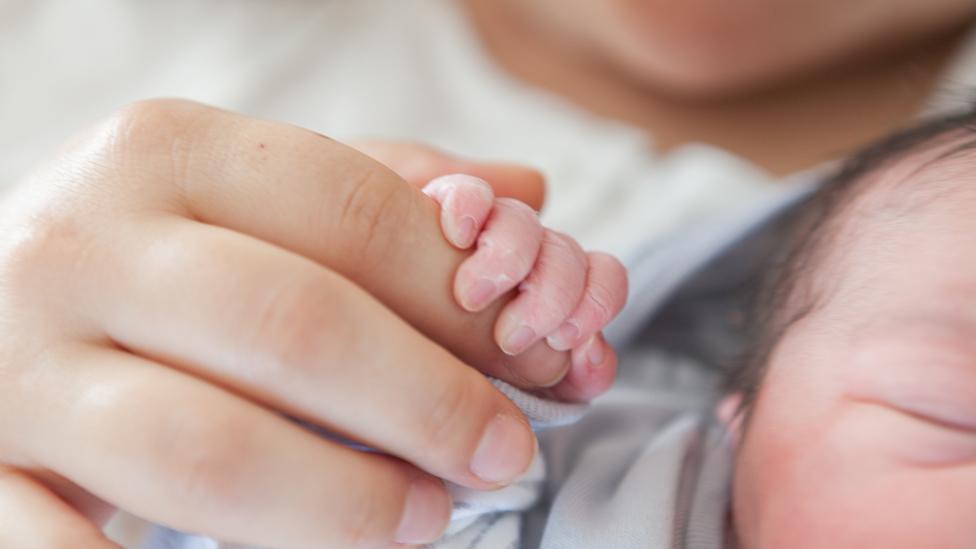Cwm Taf maternity: Calls for police investigation
- Published
Kayden was born with severe brain damage following mistakes in his mother's maternity care
A couple whose baby died after errors at a scandal-hit maternity service say they want a police investigation.
Cwm Taf Morgannwg Health Board maternity services were placed in special measures in 2019.
Mistakes in Sarah Handy's care contributed to her baby's death in 2017, an inquest found.
The health board apologised and said it had addressed issues raised by parents after a report by the Royal College of Obstetricians and Gynaecologists.
Mrs Handy's case is one of 140 being reviewed to establish whether mothers and babies were harmed by the care they received at maternity units run by Cwm Taf Morgannwg - in Prince Charles Hospital, Merthyr Tydfil, and the Royal Glamorgan Hospital, Llantrisant.
She and her husband Jonathan now want to know if wider, systemic failings may have played a part too.
The leader of Rhondda Cynon Taf council, Andrew Morgan, has echoed the family's call for a criminal investigation.
BBC Wales Investigates discovered mistakes made by maternity services in Cwm Taf Morgannwg have cost tens of millions of pounds in compensation payments in the last 10 years.
Sent home by mistake
Mrs Handy, a high-risk patient because of medical issues, ended up giving birth at home because of an error at Prince Charles Hospital.
When she went to hospital suffering from what she thought were labour pains, a registrar sent her home with laxatives and paracetamol.
But Mrs Handy was in labour, and no longer close to the medical help she needed.
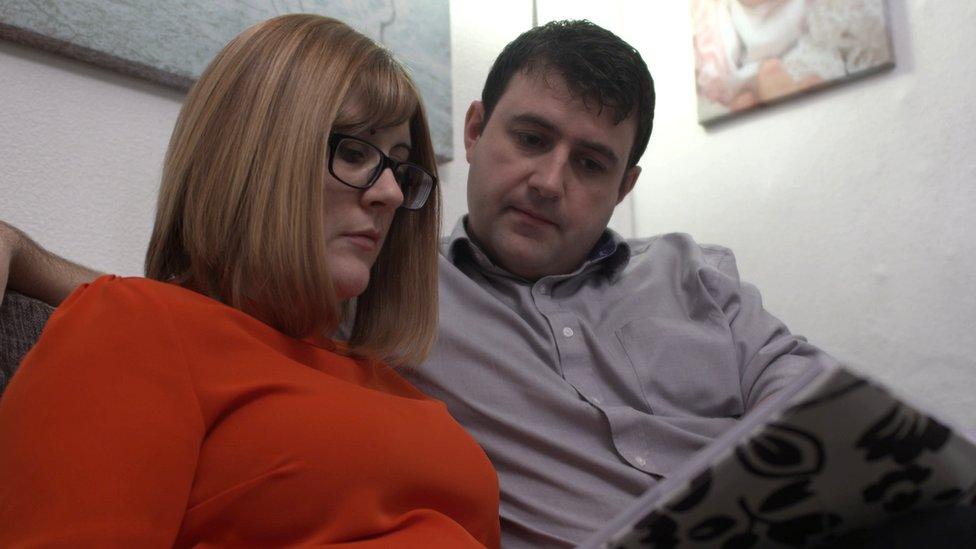
Sarah and Jonathan Handy want to know if wider failings played a part in their daughter's death
Jennifer was born so premature she needed specialist care - but instead her father, a police officer, had to deliver his daughter.
She was breathing but in a serious condition, and Mr Handy performed CPR until the paramedics came.
But by the time Mrs Handy and her daughter reached the hospital, Jennifer had died and her mother needed emergency surgery, spending weeks in hospital.
"I have flashbacks… nightmares because of having to live in the place where such a horrific thing happened to you," she said.
But because of failings in record keeping at the hospital, what happened was not reported as a "serious" incident.
"Our baby daughter died," Mr Handy, from Merthyr, said.
"My wife nearly died at home and I can't for the life of me understand how that's not a serious incident. What does qualify as a serious incident? There's a death. What is above that?"
At the inquest into Jennifer's death in April 2019 the coroner concluded that the registrar's mistake in sending Mrs Handy home had contributed to the baby's death.
That same month, a report from the Royal College of Obstetricians and Gynaecologists (RCOG) was published.
It outlined how despite repeated warnings from staff and regulators, the health board had failed to address issues such as under-staffing and a malfunctioning complaints system.
The Handys want to know if the wider failings uncovered by the inspection may have played a part in Jennifer's death too.
Mr Handy said: "Surely somewhere there has to be an investigation into whether there's any criminal element to it.
"I won't be able to rest I don't think, till we know that it has been thoroughly looked at - all angles."
Staff afraid to speak out
For six years Cwm Taf Morgannwg midwives had been trying to raise the alarm. The head of their Royal College in Wales (RCM), Helen Rogers, saw the problems first hand.
She told the BBC: "We were finding the staff in tears, really distressed they couldn't give the care and they genuinely felt that if they raised concerns, that if they put their head above the parapet, in their words, or if they spoke up they would be punished in some way. And that was the very clear perception."
The RCM's concerns were raised with managers including then chief executive Allison Williams. Paid up to £175,000 a year, it was her job to make sure the service was run properly.
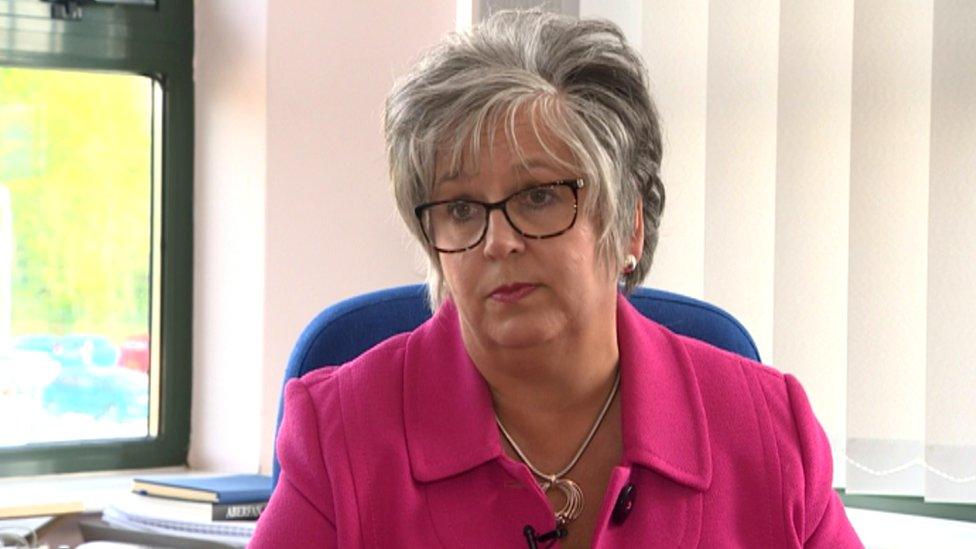
Former health board chief executive Allison Williams has apologised
Ms Rogers says concerns were passed on to Ms Williams. Managers tried to reconfigure the service but problems remained.
In 2017 maternity staff were asked to complete an anonymous survey. Of those that did, 91% said there weren't enough staff to complete work properly. They also warned it felt "unsafe" and women were receiving an unacceptable standard of care.
Communication breakdown
Mistakes made in Lisa Broom's care at Prince Charles Hospital in 2012 led to her son Kayden being born with severe brain damage which caused physical and learning disabilities.
Kayden has undergone more than 50 operations and needs 24-hour care and support at his Merthyr Tydfil home.
Ms Broom went into labour three months early and staff at Prince Charles Hospital said she would need to be transferred to a specialist unit.
The only bed available was at the John Radcliff Hospital in Oxford - 120 miles away.
"Even in the ambulance I kept saying please don't take me, I'm not going to make it," she said.
"But they had no choice, they had to follow whatever somebody above them said."
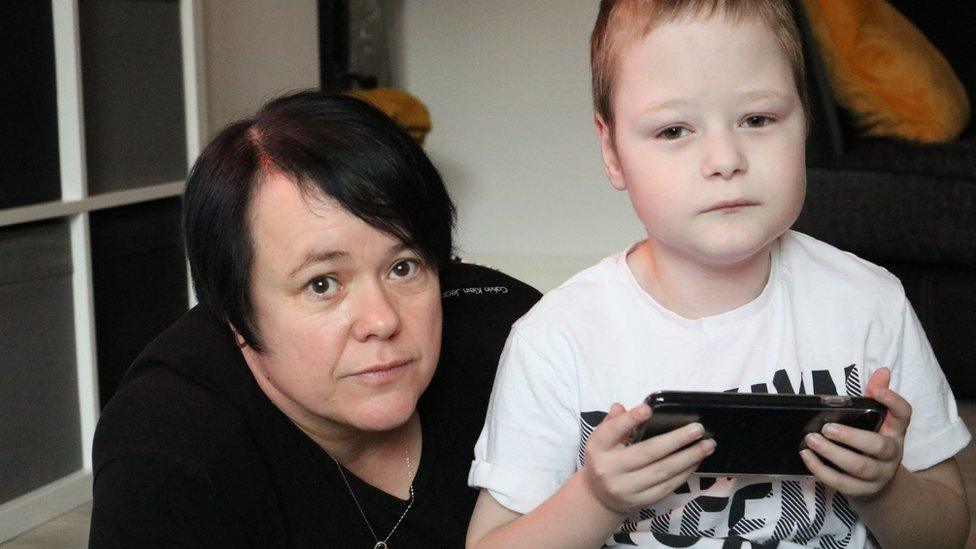
Kayden Broom's mother was sent to Oxford by ambulance when she went into labour
But there were communication errors - the registrar who sent Ms Broom to Oxford wrongly assumed she would be sent by air ambulance.
She was not checked by a consultant or given the correct medication before leaving Merthyr.
As her ambulance pulled into the hospital car park in Oxford, Kayden was born but not breathing. He was starved of oxygen which caused the brain damage.
The health board has apologised and said that lessons would be learned.
'Millions paid in compensation'
Kayden's lawyer Stephen Webber has helped a number of families get compensation for mistakes made by Cwm Taf Morgannwg's maternity service.
He said the total payments and cost of ongoing care for children could run into "tens of millions" and the health board needs to learn from its mistakes.
"It's incredibly frustrating these sorts of errors are made because it is not some great technical piece of medical treatment. It is a breakdown in communication," Mr Webber said.
"They [Cwm Taf] make these compensation payments and think it's enough. Well it simply isn't. They need to confront these problems."
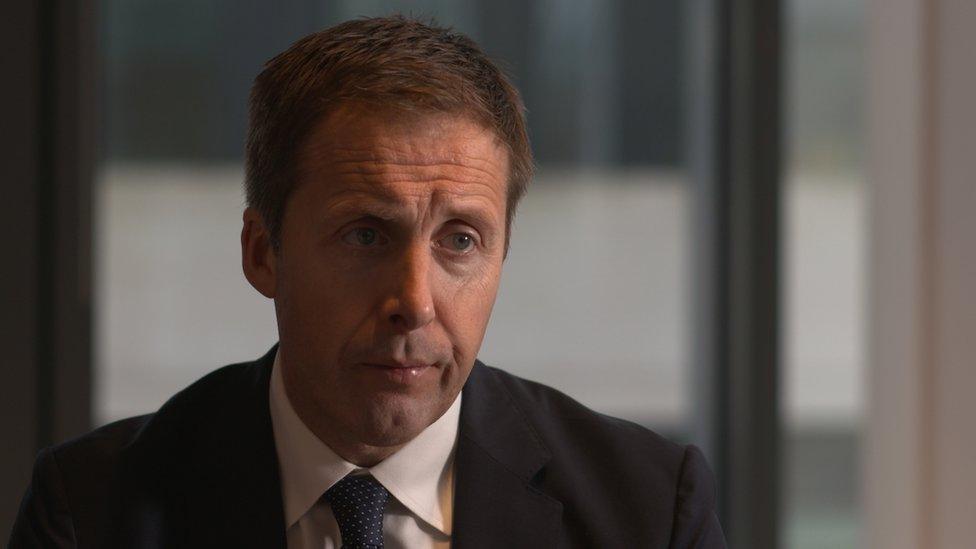
Lawyer Stephen Webber has sued Cwm Taf Morgannwg on behalf of several families
Wales' health minister Vaughan Gething said he feels he was "not told the truth" about the state of staffing before the full picture emerged.
He said: "I don't think the messaging we had was as full and honest as it should have been."
He added: "It was plain that actually, understaffing wasn't just an issue between recruitment rounds, but there was a real issue for a period of time about the staffing levels, and some staff complained and raised concerns about that and had direct assurances that it would be tackled and it wasn't. "
In 2018 a consultant midwife report said there were ongoing, systematic failures and recommended changes had not been implemented.
But the report was not shared by the then chief executive and three senior managers at the health board.
Mr Gething said that was something he was "incredibly unhappy" about.
"It's exactly what should not happen in the health service, in any part of the health service," he said.
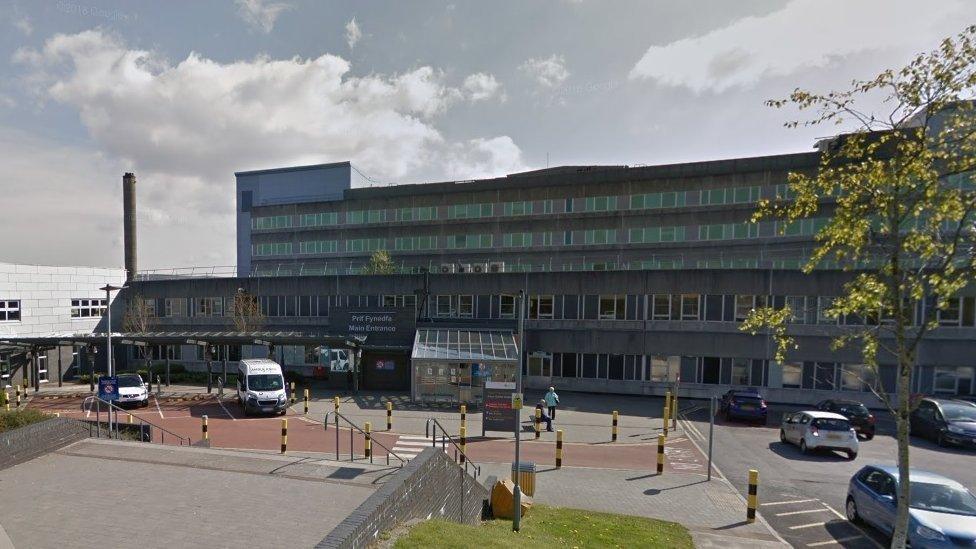
Problems were still being highlighted at Prince Charles Hospital as recently as two months ago
Allison Williams apologised publicly at the Senedd for the maternity failings.
She said: "A community like ours deserves the very best for all the reasons that you say, and we have failed them….there's no disputing that."
Ms Williams took sick leave before quitting in the summer of 2019, and declined to comment when approached by BBC Wales Investigates.
Despite maternity services being in special measures, a leaked report seen by the BBC from the Health Inspectorate for Wales shows mothers and babies were still being put at risk at Prince Charles Hospital as recently as two months ago, with emergency resuscitation equipment not properly checked and patient records not stored correctly.
Similar problems were uncovered at Cwm Taf Morgannwg's other maternity unit at the Princess of Wales Hospital in Bridgend.
Asked about the current concerns identified by HIW, Dr Sharon Hopkins, interim chief executive at Cwm Taf Morgannwg, told the programme all the concerns highlighted have now been addressed.
"We're very clear that we're not where we need to be yet. There are still lots of improvements to make," she said.
"I think things are safe, things are clinically safe, but are they as good as they could be? Is the quality where we would like it to get to? No it's not."
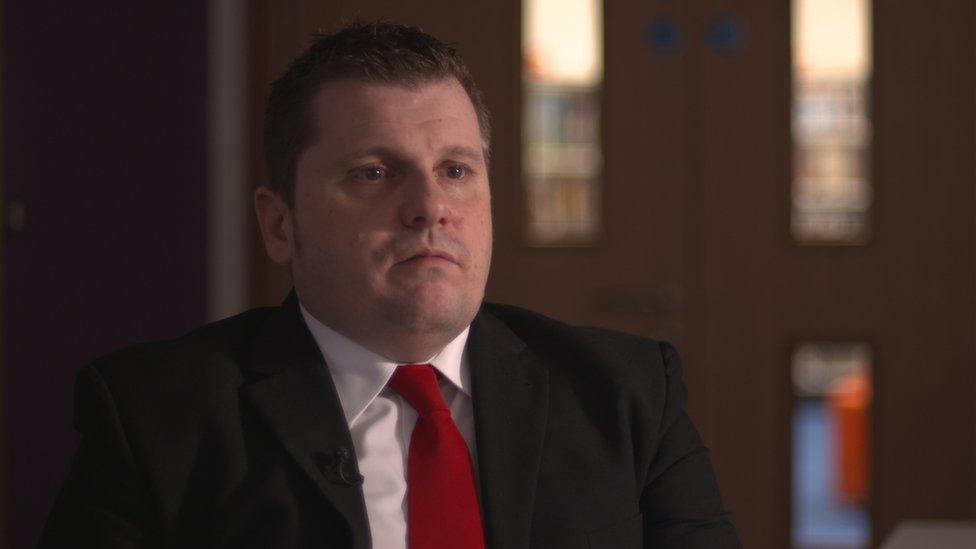
Andrew Morgan said he felt misled over the maternity failings
Possible court action
Rhondda Cynon Taf council leader Andrew Morgan said it was "an absolute scandal" nobody on the health board had been held to account for the previous maternity service failings.
He echoed the Handys' calls for criminal investigations.
"If it's established that harm did come to individuals through neglect or because people knew of the risks and didn't act, then potentially they should face further action through the courts," he said.
BBC Wales Investigates Uncovered: The Baby Scandal is on Monday, 27 January at 19:30 GMT on BBC One Wales
- Published20 January 2020
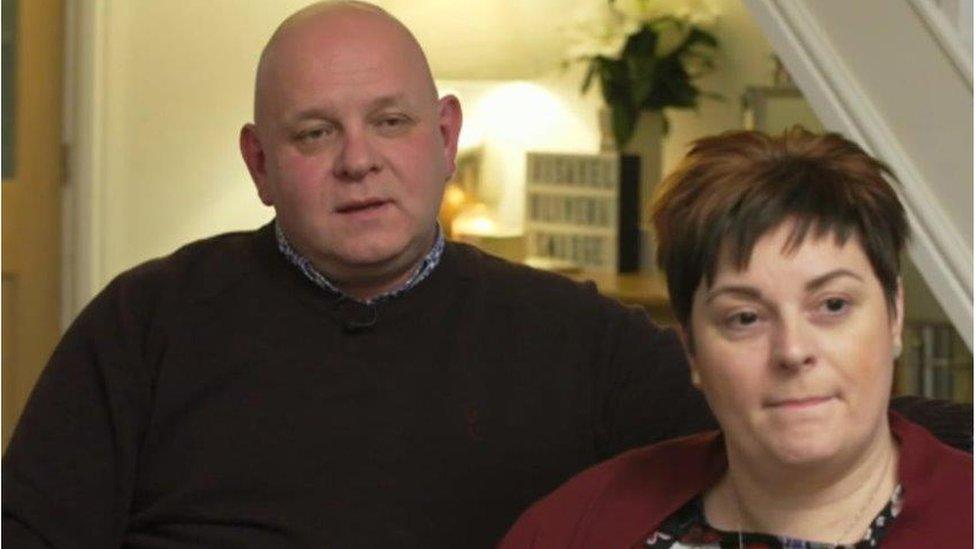
- Published30 April 2019
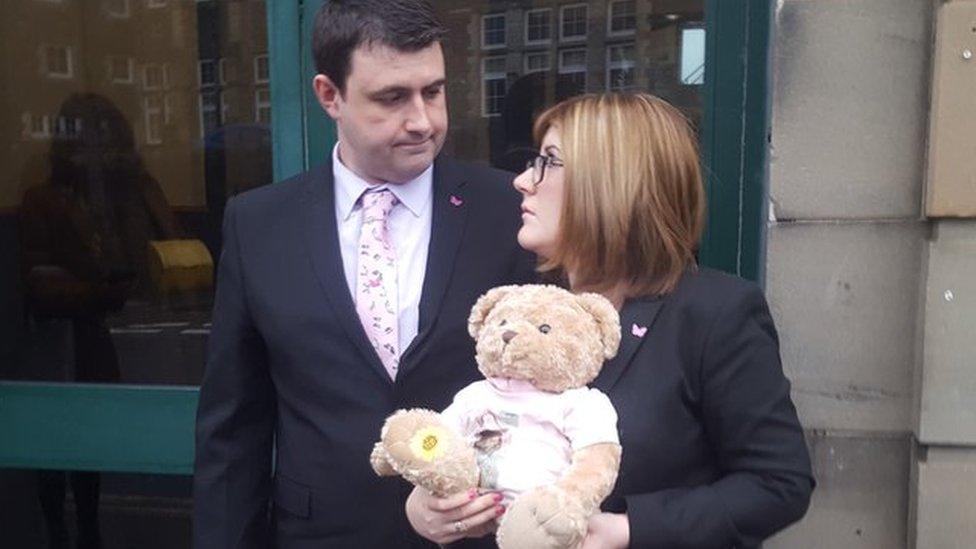
- Published8 October 2019
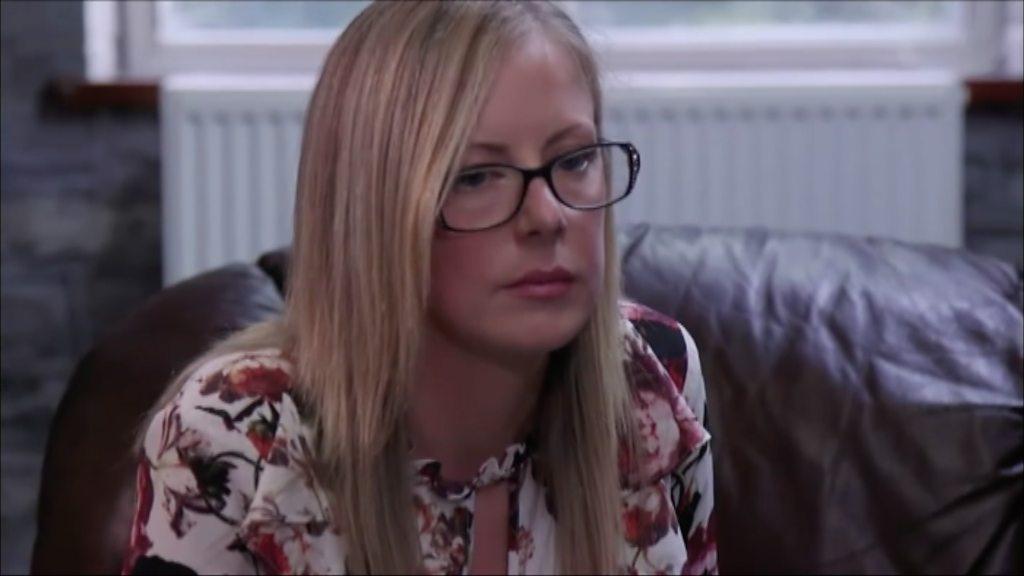
- Published20 January 2020
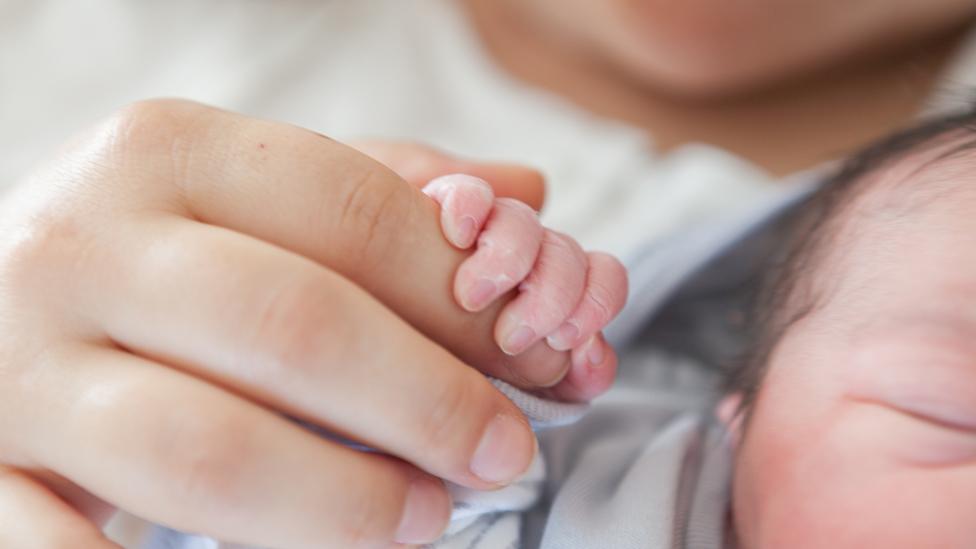
- Published23 May 2019
